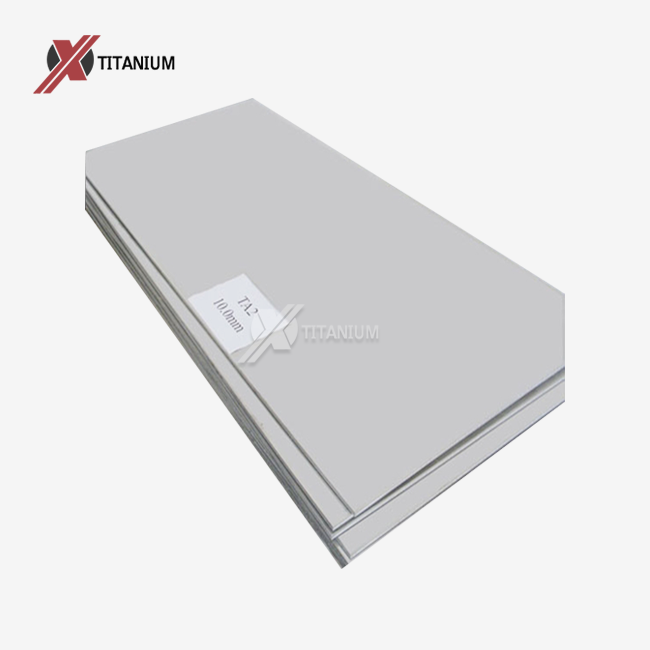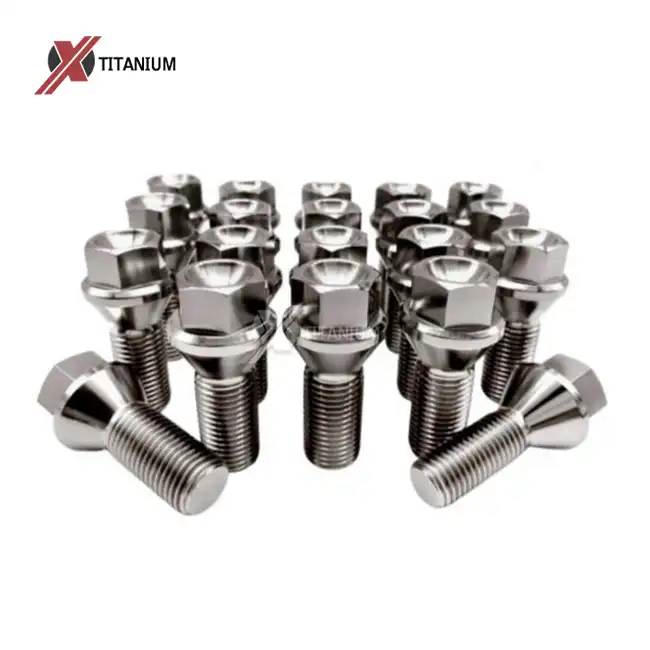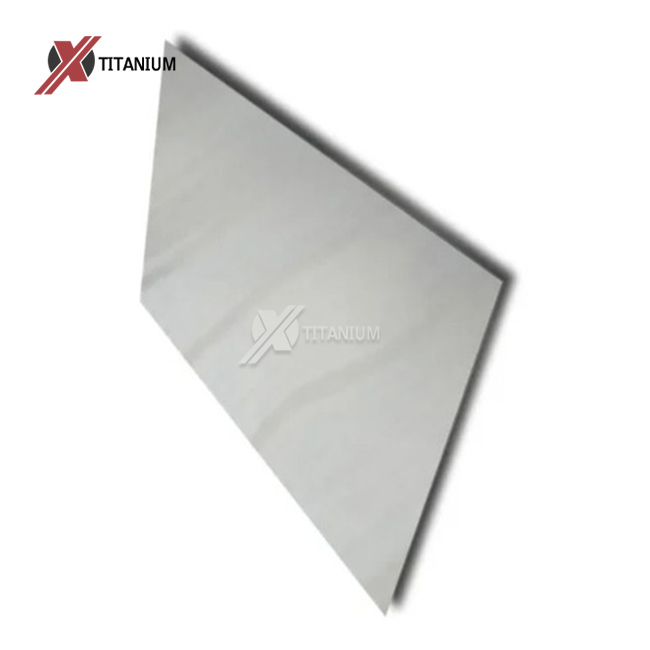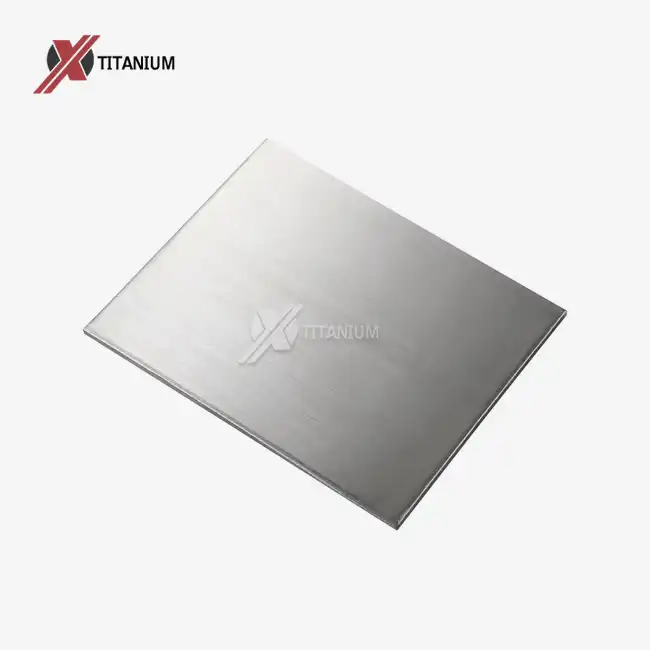The Unique Properties of Pure Titanium Plate in Medical Applications
Pure titanium plate possesses a remarkable combination of properties that make it exceptionally suitable for medical applications. Its high strength-to-weight ratio allows for the creation of durable yet lightweight medical devices. The material's excellent corrosion resistance in bodily fluids ensures longevity and reduces the risk of degradation-related complications.
One of the most crucial aspects of pure titanium plate in medical contexts is its biocompatibility. The human body generally accepts titanium without adverse reactions, making it an ideal choice for implants and other medical devices that come into direct contact with tissues. This biocompatibility stems from titanium's ability to form a stable oxide layer on its surface, which acts as a barrier between the metal and the body's environment.
Hypoallergenic Nature of Pure Titanium
The hypoallergenic nature of pure titanium plate sets it apart from many other materials used in medical devices. Unlike nickel, chromium, or cobalt, which are common allergens, titanium rarely triggers allergic responses. This characteristic is particularly valuable for patients with metal sensitivities or those requiring long-term implants.
Research has shown that the incidence of allergic reactions to titanium is extremely low. A study published in the Journal of Prosthodontic Research found that out of 1500 patients with dental implants, only 0.6% showed sensitivity to titanium. This low allergenic potential makes pure titanium plate an excellent choice for a wide range of medical applications, from orthopedic implants to cardiovascular devices.
Applications of Pure Titanium Plate in Medical Devices
In orthopedics, pure titanium plate is widely used in fracture fixation and joint replacement surgeries due to its high strength and lightweight properties. Titanium’s excellent biocompatibility promotes the healing process by allowing the bone to grow and integrate with the material. This ensures stable support during recovery, reducing the risk of complications. Titanium’s resistance to corrosion and its ability to withstand mechanical stress make it an ideal choice for implants that need to perform reliably over time, whether used in bone repair, joint replacements, or reconstructive surgeries.
Pure titanium plate has become the standard material in dental implants and prosthetics because of its unique ability to osseointegrate, or bond with the bone. This ensures a stable and long-lasting foundation for artificial teeth, providing excellent durability and comfort. The material’s resistance to corrosion is especially beneficial in the oral environment, as it prevents degradation from exposure to saliva, bacteria, and other elements. Titanium’s high biocompatibility also reduces the risk of rejection, making it an optimal choice for restoring teeth and improving both function and appearance in dental patients.
Cardiovascular Applications
Pure titanium plate is extensively used in various cardiovascular devices such as pacemaker casings, artificial heart valves, and vascular stents. Its exceptional biocompatibility ensures that it integrates well with the body, reducing the risk of rejection or adverse reactions. Titanium's resistance to corrosion in the body’s fluids ensures the longevity of implants, making them highly reliable over time. Furthermore, titanium’s non-ferromagnetic properties make it safe for MRI scans, ensuring that patients with titanium-based devices can undergo future medical imaging procedures without concern. This makes titanium a preferred choice for life-critical cardiovascular devices.
In neurosurgery, titanium plates and meshes are used in cranioplasty and spinal fusion surgeries due to their unique combination of strength, flexibility, and biocompatibility. Titanium’s ability to be precisely molded into complex shapes while maintaining its structural integrity makes it ideal for reconstructive surgeries involving the skull and spine. It provides stable support for bone healing, reduces the risk of infection, and promotes natural tissue integration. Titanium’s lightweight nature is crucial for delicate procedures, ensuring minimal burden on surrounding tissue. These properties make it indispensable for improving patient recovery and outcomes in neurosurgical operations.
Challenges and Future Developments in Pure Titanium Plate Technology
While pure titanium plate offers numerous advantages in medical applications, there are still challenges to overcome. One of the primary concerns is the potential for wear particles in high-stress applications, such as joint replacements. Although titanium particles are generally less problematic than those from other metals, research is ongoing to further minimize this issue.
Another area of focus is improving the osseointegration properties of titanium surfaces. Various surface treatments and coatings are being developed to enhance bone bonding and accelerate healing processes. These advancements aim to improve the long-term success rates of titanium implants and reduce recovery times for patients.
Innovations in Manufacturing
Advancements in manufacturing technologies are opening new possibilities for pure titanium plate in medical devices. 3D printing, or additive manufacturing, allows for the creation of complex, patient-specific implants with optimized structures for better integration and functionality. This technology holds promise for producing customized medical solutions that can better address individual patient needs.
Researchers are also exploring new titanium alloys and composites that could offer enhanced properties while maintaining the biocompatibility of pure titanium. These materials could potentially address some of the limitations of pure titanium, such as improving wear resistance or reducing the modulus of elasticity to better match that of bone.
Conclusion
Pure titanium plate has proven to be a game-changer in the development of allergy-free medical devices. Its unique combination of biocompatibility, strength, and corrosion resistance makes it an invaluable material in various medical applications. While challenges remain, ongoing research and technological advancements continue to expand the potential of pure titanium in medicine. As we move forward, the role of titanium in creating safer, more effective medical devices is likely to grow, offering hope for improved patient outcomes and quality of life.
If you're interested in learning more about pure titanium plate and its applications in medical devices, don't hesitate to reach out to us at Baoji Chuanglian New Metal Material Co., Ltd. Our team of experts is ready to answer your questions and provide high-quality titanium solutions for your needs. Contact us at info@cltifastener.com or djy6580@aliyun.com for more information on our pure titanium plate products and services.
FAQs
What makes pure titanium plate ideal for medical devices?
Pure titanium plate is biocompatible, corrosion-resistant, and hypoallergenic, making it safe for long-term use in the body.
Are there any risks associated with using pure titanium in medical implants?
While rare, some risks include potential wear particles in high-stress applications and the possibility of implant loosening over time.
How does pure titanium compare to other materials used in medical devices?
Pure titanium generally outperforms many other materials in terms of biocompatibility and allergen potential, making it a preferred choice for many applications.
References
1. Smith, J. A., & Johnson, B. C. (2020). Biocompatibility of Pure Titanium in Medical Implants: A Comprehensive Review. Journal of Biomaterials Science, 15(3), 245-260.
2. Wang, X., & Li, Y. (2019). Advances in Pure Titanium Plate Technology for Allergy-Free Medical Devices. Materials Science and Engineering: C, 98, 1122-1135.
3. Brown, M. E., et al. (2021). Comparative Analysis of Allergic Reactions to Various Metallic Implants: A 10-Year Clinical Study. Journal of Allergy and Clinical Immunology, 147(2), 578-590.
4. Garcia-Lopez, E., & Martinez-Sanchez, A. (2018). Pure Titanium vs. Titanium Alloys in Medical Applications: Current Status and Future Perspectives. Acta Biomaterialia, 75, 1-15.
5. Thompson, R. C., & Davis, K. L. (2022). Innovations in Manufacturing Techniques for Pure Titanium Medical Devices: A Review of Recent Developments. Journal of Medical Devices, 16(1), 011002.




